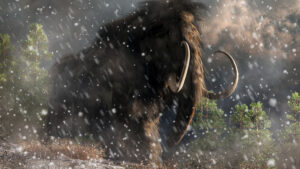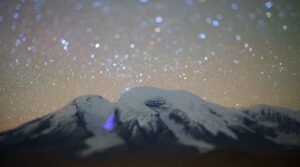Nearly 164 years after Charles Darwin published On the Origin of Species, a team of scientists and philosophers have proposed a new law of nature that applies to the world beyond living organisms.
Beyond biological evolution
Darwin and Alfred Wallace discovered that natural selection drove evolution. Here, selection pressures result in organisms best adapted to their environment. The new paper, On the Roles of Function and Selection in Evolving Systems, suggests that a similar law underpins many non-living natural systems. That includes planets, stars, atoms, minerals, and even weather.
The scientists argue that these systems evolve, becoming more complex and diverse.

Cell division is a sea urchin embryo. The paper argues that, like life, non-living organisms also evolve to become more complex. Photo: Shutterstock
Nature’s missing law
“We have well-documented laws that describe such everyday phenomena as forces, motions, gravity, electricity, magnetism, and energy,” Robert Hazen, a co-author of the study, told Reuters. “But these laws do not, individually or collectively, describe or explain why the universe keeps getting more diverse and complex at scales of atoms, molecules, minerals, and more.”
The researchers named this missing law the “law of increasing functional information.” They identified three selection pressures that apply to evolving systems. These are novelty, stability, and the ability to continue the processes that lead to this more general evolution.
Stars evolve too
According to the authors, one example of an evolving non-living system is stars. The first stars formed after the Big Bang were mainly composed of hydrogen. As time went on, their cores formed some 20 heavier elements. When they exploded at the end of their cycles, it led to the next generation of stars. These newer stars eventually generated more than 100 elements.

A well-known emission nebula with regions of star formation in the constellation of Cassiopeia. Photo: Shutterstock
“Earth’s biosphere is the most complex evolving system we know of so far,” author Michael Wong of Carnegie Institution for Science told The Guardian. “We ought to ask ourselves: What functions are we promoting (or damaging) in our own evolving biosphere? What features of our present-day society are conducive to not only long-term persistence but long-term thriving, and what aspects require changing?”






